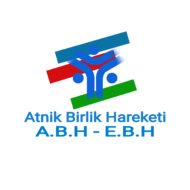Ethnic Unity Movement
Ethnic Unity Movement Atnik Birlik Hareketi | |
|---|---|
 | |
| Leader | Andrei Sazirsokov |
| Deputy Leader | Jochi Khasar |
| Founder | Andrei Sazirsokov |
| Founded | 2002 |
| Headquarters | Zyngem District, North Chejjiak, Chejjiak |
| Membership | 200 |
| Ideology |
|
| Political position | Centre |
| National affiliation | National Ethnic People Unity Union |
| Kalsakia Political Parties Coalition/Alliance | Rally for a Kalsaklian Unity |
The Ethnic Unity Movement (Kamilistani: Atnik Birlik Hareketi), offically know as the Ethnic Unity in Kalsakia - Movement for Ethnic Unity and Understanding is a Kalsakian regionalist political party formed in 2002. Formerly the Voice for Unity Party till 2028, it is one of the first centrist party in Kalsakia. It also one of the founder of the political alliance, Rally for a Kalsakian Unity with the Centre Party.
ABH's Overview
Founded in 2002 by Andrei Sazirsokov, an native to Kalsakia and a teacher in the Kalsakian State Secondary School (KSSS) in Chejjiak, along with Kasar, they formed the Voice of Unity Party till 2028 when the party decided to rename the party to now what is now known as the Ethnic Unity Movement. During the last election, they gain the votes of 2.42% of the total voters, never winning any seats in the lower house nor in the upper house.
The party is popular among the Kalsakian Sub-Groups Natives, the Zary and the Northern Kalyich people, and they gain their votes from the 2 natives, while in social class it is popular among the lower income household to working class. The party held it's first congress in 2025 in Chejjiak to discuss the oncoming election and ongoing poverty among the Kalsakian people. The party 200 strong members are made out of Zarys and Northern Kalyich people, with the minorites being Native Kamilistani and Georgians, Chechens and Mounntain Turks.
The party goals are as follow
- To represent the multiple ethnic natives in Kalsakia
- To regionalize the Kalsakian Autonomy
- Forming a union between the citizens, law enforcement and government.
- To decrease the poverty rate in Kalsakia to under 2%
- To build new infrastructure in the region for the people and the nation.
- To stabilize the region by talking to armed and rebel groups
- Encourage the locals to buy local, use local, and make local-made products
- Introducing an law against pollution, by introducing anti-logging, anti-illegal hunting laws and forest reservation
- End the Corruption cycle between politicians in Kalsakia